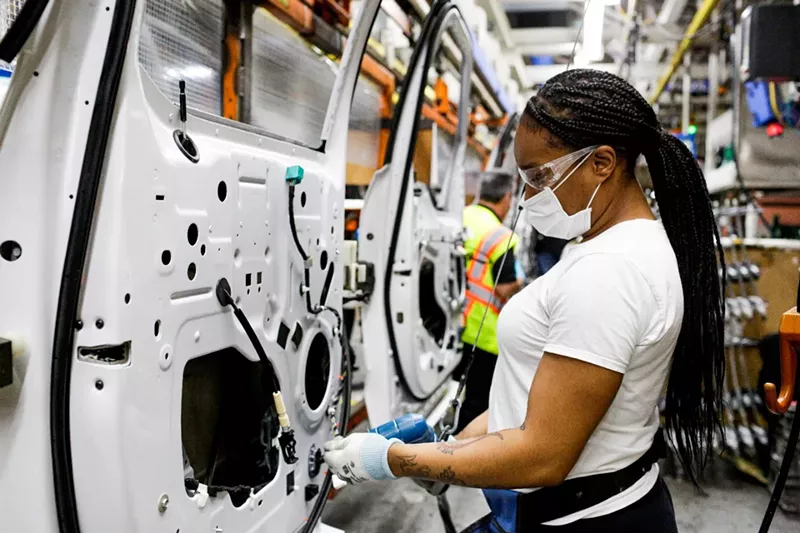
Courtesy of Ford Motor Co.
A woman working at Ford's Dearborn truck plant.
A new report predicts Michigan's economy would see major benefits from the Biden administration's proposed $274 billion investment to electrify the transportation sector.
The report from Advanced Energy Economy noted the American Jobs Plan would create jobs, increase Gross Domestic Product and spur private investment.
Laura Sherman, president of the Michigan Energy Innovation Business Council, a trade group, said electric vehicles represent where the industry is going globally, and Michigan automakers are also moving in that direction.
"We're getting a lot more companies who are building the batteries for electric vehicles, building up that supply chain here," Sherman observed. "Obviously, the automakers work with a huge network of suppliers. And so, I think there's a lot of opportunities for job growth."
The report estimates 7% job growth this year in Michigan's advanced-energy sector, which already employs more than 120,000 people in the state, which is more than work manufacturing motor-vehicle parts.
The highest number of advanced-energy jobs are in energy efficiency, followed by solar, wind and hydro; battery storage and grid technology; and electric transportation.
Sherman added electrifying transportation, especially public transit and larger vehicle fleets, could make a difference in cities for historically disadvantaged communities that have been affected most by air pollution.
"I think there are a lot of places in Michigan where you have highways cutting through neighborhoods," Sherman remarked. "And if we could clean up those diesel trucks that are idling in the neighborhoods, you're going to positively impact the communities."
Ryan Gallentine, policy director for Advanced Energy Economy, pointed to analysis that shows each dollar of public investment generates roughly $2.60 in direct private investment.
"That's a good deal for consumers. It's a good deal for the U.S. economy, and it's something that should have bipartisan support in Congress," Gallentine asserted.
Congress is negotiating the broader infrastructure package, originally tagged at more than $2.2 trillion. Republicans have come back with smaller proposals and so far, no agreement has been reached.
Stay connected with Detroit Metro Times. Subscribe to our newsletters, and follow us on Google News, Apple News, Twitter, Facebook, Instagram, or Reddit.






